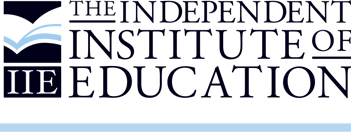Securing Your Educational Journey Unmasking Fly by Night Schools in South Africa
SECURING YOUR EDUCATIONAL JOURNEY: UNMASKING FLY-BY-NIGHT SCHOOLS IN SOUTH AFRICA
Dr Makhapa Makhafola – Chief Operating Officer, SAQA
In recent years, South Africa has witnessed a surge in the proliferation of illegal colleges and universities, commonly known as "fly-by-night" institutions. These establishments prey on unsuspecting students, offering promises of education without adhering to the necessary regulations. As a result, numerous students find themselves victims of these deceitful institutions, facing the consequences of invalid certificates and wasted investments.
The Pervasiveness of Fly-by-Night Schools
These unregistered colleges, often appearing legitimate, have mushroomed across the country. Their deceptive nature can lead desperate students to enroll in programmes that are neither accredited nor recognised by the Department of Higher Education and Training (DHET). It is crucial for individuals to remain vigilant, as falling into the trap of these bogus institutions can have severe repercussions.
Red Flags and Methods of Attraction
To identify potential fly-by-night institutions, individuals must be aware of certain red flags commonly associated with these deceitful establishments. Some of the warning signs include:
• Consultants promising jobs after graduation.
• Offers of two degrees for the price of one or significant discounts.
• Exaggerated claims about accreditation to create a facade of credibility.
• Similar or identical names to prestigious universities like Cambridge or Oxford.
• Application forms lacking essential information or proof of formal schooling.
• Absence of a physical address for the institution or awarding body.
• Local tuition centers claiming to offer qualifications on behalf of foreign universities.
• Continued emphasis on international accreditations and qualifications.
• Unauthorised use of seals, crests, and logos of legitimate institutions.
Spotting Fly-by-Night Schools
To avoid falling victim to illegitimate institutions, individuals should take the following precautions:
1. Check DHET Registration: Ensure the college is registered with the Department of Higher Education and Training, displaying the registration certificate on its premises.
2. SAQA Verification: Confirm that all qualifications offered are registered with the South African Qualifications Authority (SAQA). SAQA provides an identity number for verification.
3. Accreditation Check: Verify if the course is accredited by the Council for Higher Education (CHE), Sector Education and Training Authority (SETA), or Quality Council for Trades and Occupations (QCTO).
4. Realistic Duration: Be cautious of institutions offering diplomas and degrees in an unusually short period, as this could be a sign of illegitimacy.
Important Considerations Before Enrollment
Before enrolling in any institution, students and parents should:
• Investigate the institution's operating history, location, infrastructure, and professionalism of staff.
• Verify the qualifications and expertise of lecturers teaching the modules.
• Confirm that the institution adheres to the National Qualifications Framework (NQF) regulations.
SAQA and Types of Institutions in South Africa
The South African Qualifications Authority (SAQA) plays a crucial role in regulating qualifications within the National Qualifications Framework (NQF). Public and private institutions must adhere to registration and accreditation processes to ensure the legitimacy of their offerings.
Understanding Accreditation
Accreditation is a certification of competence, authority, or credibility granted to an institution within the quality assurance system of the NQF. The three primary accrediting bodies are the Council on Higher Education (CHE), Quality Council for Trades and Occupation (QCTO), and Umalusi.
Learners' Responsibilities and Actions
Learners are advised to:
• Differentiate between registration and accreditation status.
• Ensure that the institution is registered and accredited before enrolling.
• Apply on time to legitimate institutions, avoiding desperation-driven decisions.
• Report illegitimate institutions to authorities promptly.
Consequences of Studying at Bogus Institutions
Certificates obtained from illegitimate institutions lack recognition and value within the workplace. Students investing time and resources in such qualifications may find themselves unable to secure jobs and may need to pursue accredited qualifications later.
Seeking Assistance and Reporting
Students and parents discovering they are studying at unregistered institutions or holding unrecognised qualifications are urged to:
• Contact the DHET call center at 0800 872 222 for guidance.
• De-register immediately and request a refund.
• Report the situation to relevant authorities, including the DHET, Quality Councils, SETA's, and the South African Police Service (SAPS).
Conclusion and Contacts
In conclusion, avoiding fly-by-night institutions requires informed decision-making and due diligence. For additional information and assistance, individuals can reach out through various channels, including SMS, calls, and emails, to relevant authorities and organisations such as SAQA and CHE.
Education is an invaluable investment, and by staying informed, individuals can safeguard their future against the pitfalls of illegitimate educational institutions.










